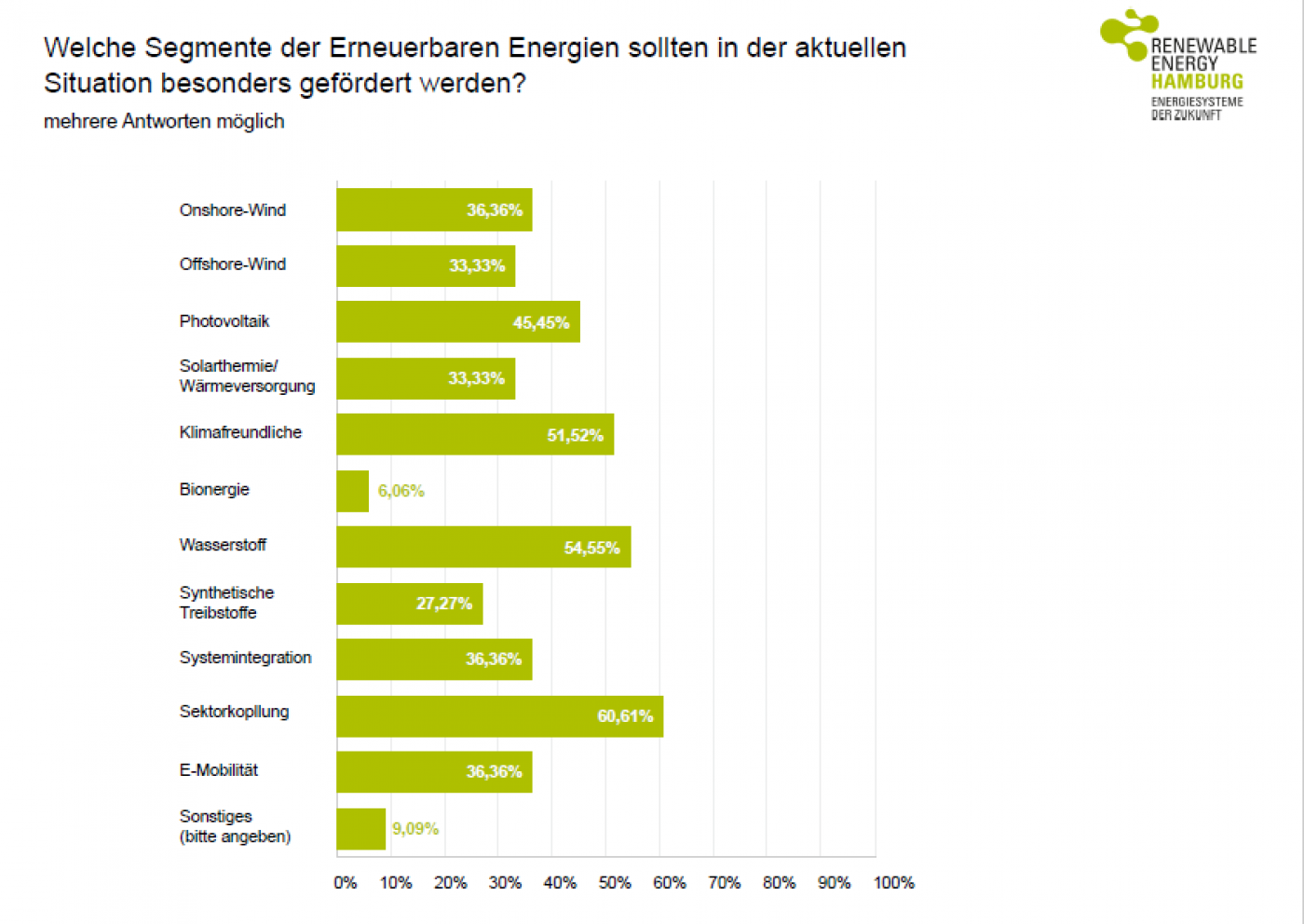Two thirds of the companies surveyed came out in favour of greater sustainability and climate compatibility post-corona. Around 85 per cent of respondents believe that the expansion of renewable energies should be given a high to very high priority in an adapted energy system. Almost half of the respondents said the crisis offers a historic opportunity for innovation and accelerating the expansion of renewable energies as well as restructuring the energy sector.
The Renewable Energy Hamburg Cluster Agency (EEHH) has called for greater climate protection following a post-corona survey of its 200 members in July. The companies had commented on their industry's role in the overall economic recovery and on the need for subsidies and regulation.
Opportunity for innovations
Structural change
More than half of the respondents feel that renewable energies are insufficiently perceived by politicians unlike companies in the private sector. Provided the right incentives and rules are in place, renewable energies could make a decisive contribution to structural change, they said. "The corona pandemic has shaken up many sectors of the economy and many people as well. The immediate consequences of the enforced standstil have given these people a more concrete idea of the value of an intact environment and the importance of the energy transition," said Jan Rispens, Managing Director of the EEHH cluster.
Need for keener focus on renewable energies
Two thirds of the companies surveyed believe that renewable energies should receive special state support for the economic recovery. Some companies would like to see fewer regulatory barriers, swifter and simplified approval procedures rather than financial benefits. Two thirds of those surveyed would like to see the economy as an energy consumer become legally obliged to rely more on renewable energies during the recovery. Sector coupling, hydrogen projects and a climate-friendly heat supply are particularly worthy of support, they said.

Foward-looking hydrogen strategy
Respondents welcomed efforts by the political sphere in the hydrogen sector. More than two thirds consider the national hydrogen strategy to be the right means of giving the energy industry a strong, new impetus. More than three quarters rate it as good or very good. However, its success hinges on the expansion of renewable energies for hydrogen production in Germany. This should be boosted significantly and the energy industry's regulatory framework adjusted so that it pays off economically, most respondents said. More and more young engineers are interested in jobs in the renewable energy sector, which may yet benefit from the corona crisis. The respondents called for more digitalisation as well as more attractive and modern working time models to stir up interest among these potential newcomers.
sm/kk/pb
Sources and further information
More
Similar articles

Hydrogen as an energy carrier of the future

Future of renewable energy sector is digital

